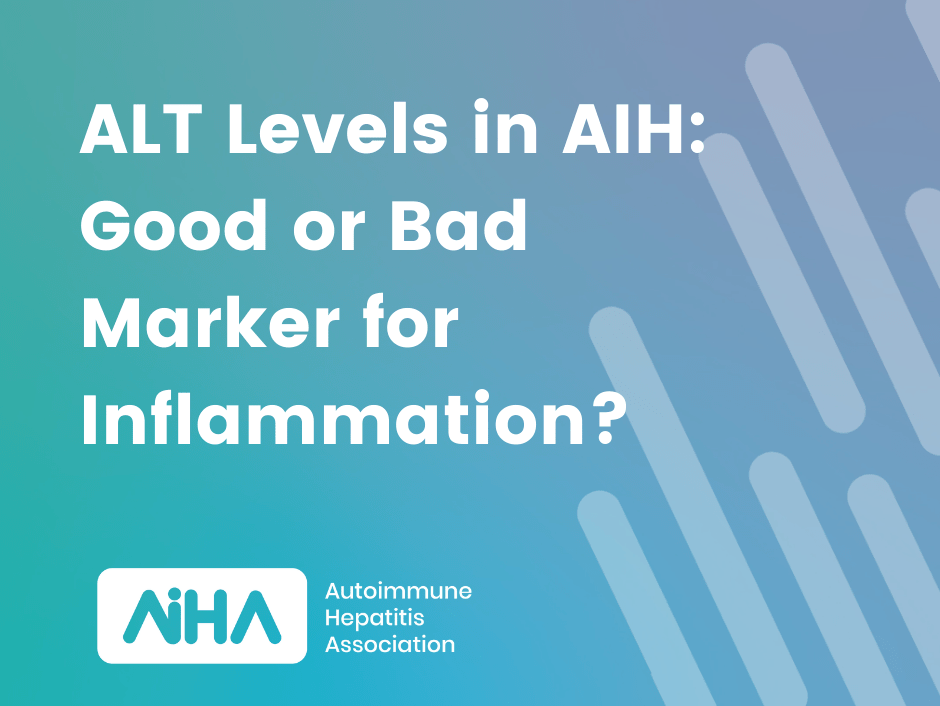By Craig Lammert, M.D., AIHA Executive Director

Currently, the most important treatment goal for autoimmune hepatitis (AIH) is normal liver tests (AST and ALT) and IgG levels. These numbers are used by treating doctors as surrogates for AIH-related liver inflammation. When they are low, doctors believe the inflammation in the liver is well controlled and ensures that immunosuppressive medications are doing their job. Higher amounts of inflammation tend to predict liver disease progression.
Cirrhosis is the most advanced level of scarring in the liver, characterized by thick fibrous bands of connective tissue throughout the liver. In cirrhosis, liver tests as a surrogate for good inflammation control have not been well studied. This is important as:
1. Up to 50% of patients may have cirrhosis at AIH diagnosis.
2. Cirrhosis patients need excellent control of inflammation to prevent further decline in liver function, and
3. Liver tests in cirrhosis patients can be artificially low even when there is significant inflammation. (This may be related to how much liver reserve function is present.)
In a recent European AIH study, researchers looked at the liver biopsies from 113 AIH patients with cirrhosis and 104 AIH patients without cirrhosis and sought to understand if low ALT levels predicted good control of inflammation in the liver biopsy (under the microscope).
Bad and Good News
The Bad: There were 47 AIH patients with cirrhosis and normal ALT – concerningly only 12 (26%) had liver biopsies showing minimal AIH-related inflammation. 36% of these patients had moderate to high levels of inflammation. The Good: 88% of noncirrhotic AIH patients with normal ALT had minimal AIH-related inflammation.
What does this mean for patients?
1. AIH patients with normal ALT and no cirrhosis can likely rest assured that liver inflammation is well controlled.
2. Normal ALT in AIH patients with cirrhosis may not be a good biomarker for good inflammation control. This finding highlights a critical need for AIH patients with cirrhosis; we need much better markers of inflammation control. As of now, liver biopsy provides the most clarity.
